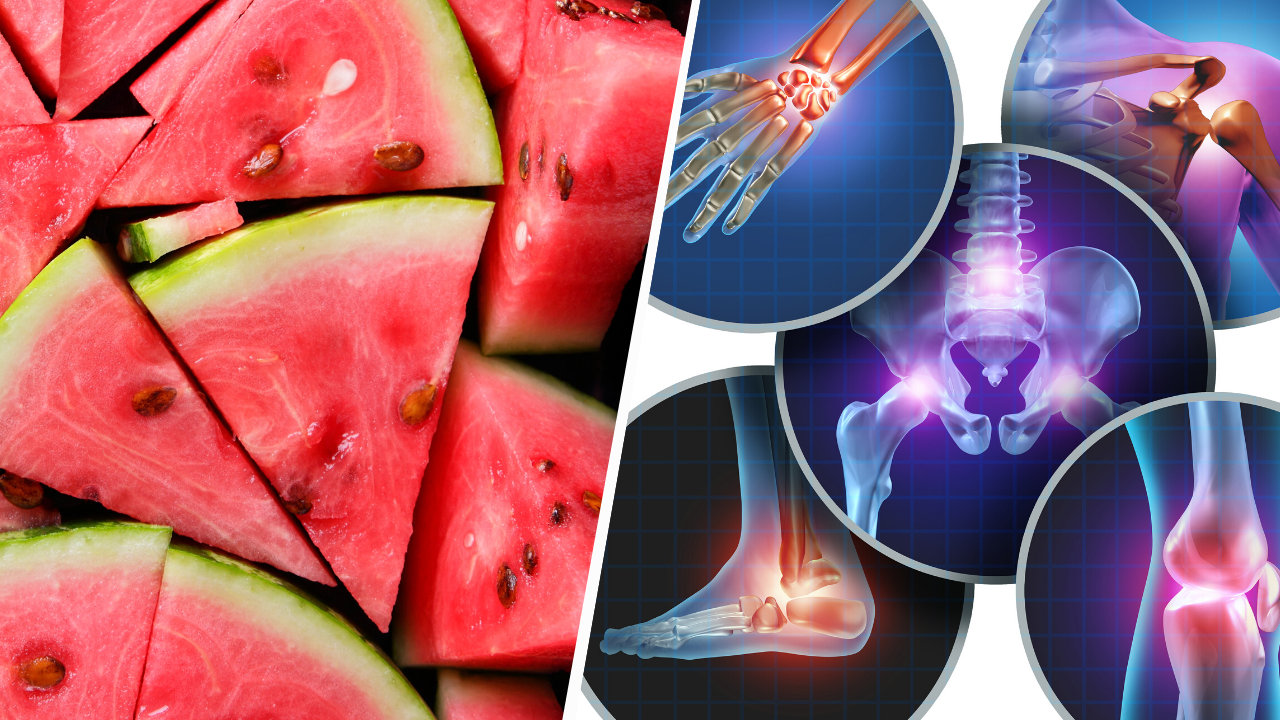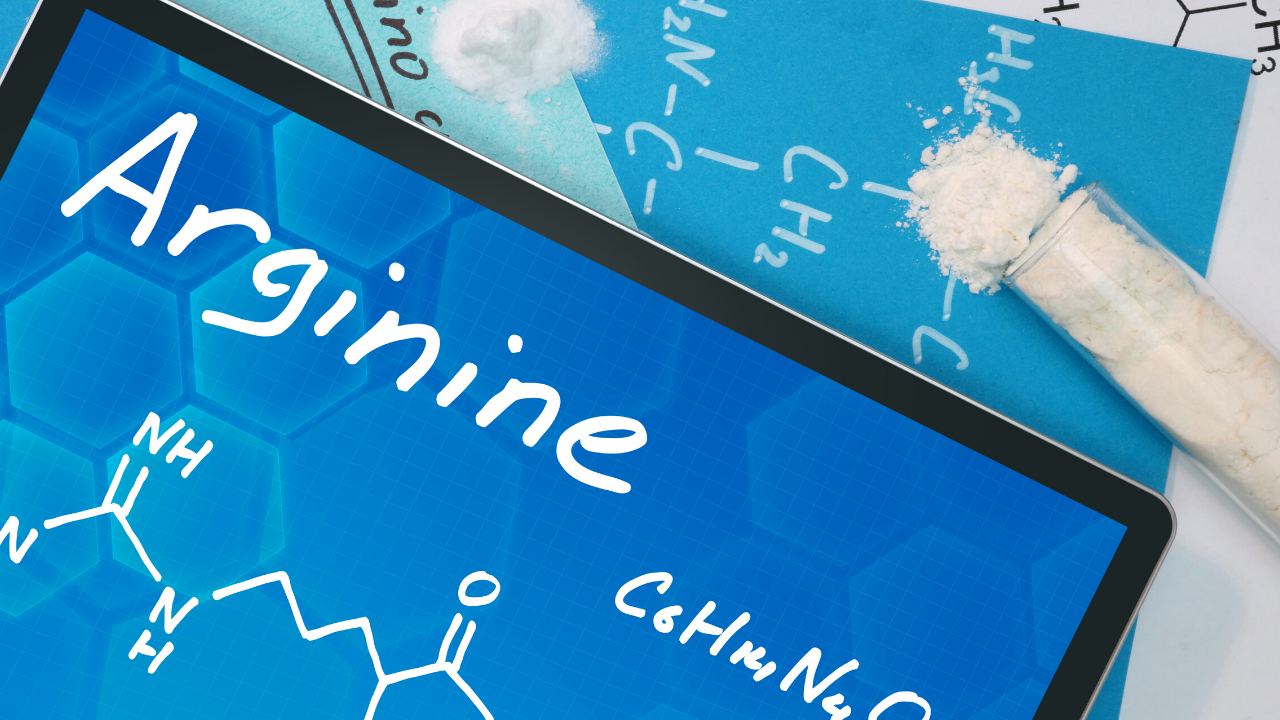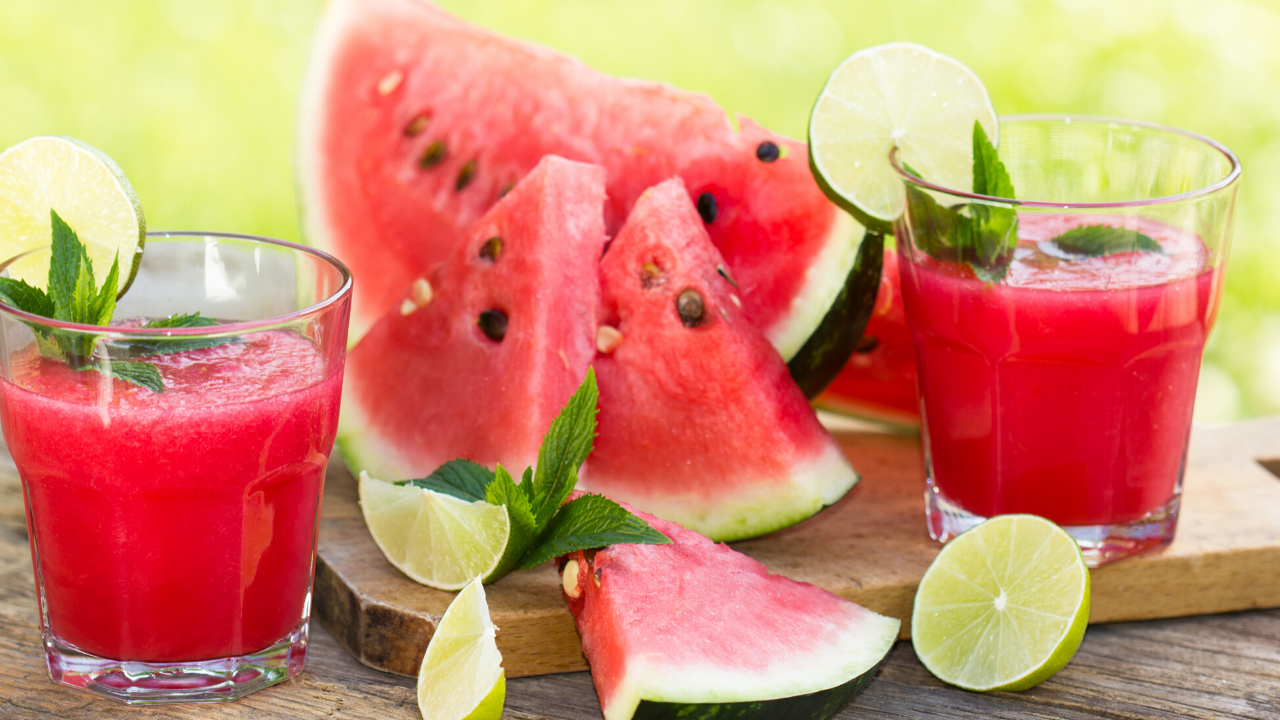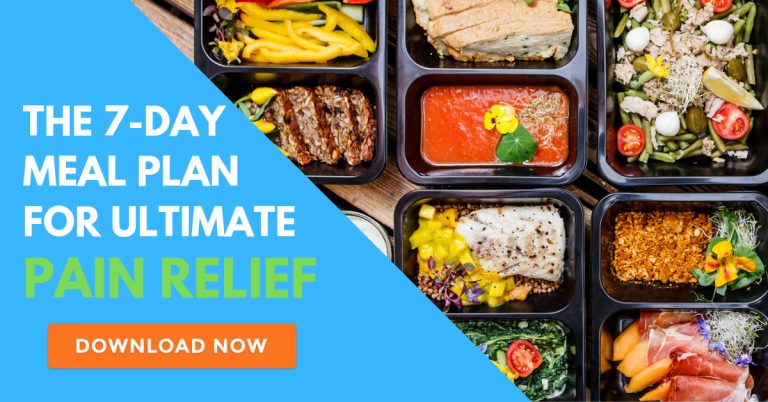
Watermelon is a summertime staple, adored for its sweet flavor and oh-so refreshing on a hot summer day. It’s a must-have for Fourth of July barbecues and other warm-weather bashes, but there’s reason to love watermelon beyond its taste…
Research shows this refreshing fruit provides multiple health benefits to your body, including pain relief.
How? Watermelon contains l-citrulline — about 250 milligrams (mg) per cup.[i] L-citrulline is an amino acid that your body converts into the amino acid arginine.
Research confirms that your levels of arginine can be increased through intake of citrulline from watermelon.[ii]
This is well worth noting because arginine is used in the synthesis of nitric oxide and plays an essential role in cardiovascular and immune functions, according to research published in the journal Nutrition.[iii] Nitric oxide helps your blood vessels to relax and improves blood flow.

Not only is this beneficial for your heart health, but it may also provide a natural treatment for erectile dysfunction[iv] and help with pain relief.
When athletes consumed about two cups of fresh (not pasteurized) watermelon juice, they had reductions in recovery heart rate and muscle soreness after 24 hours.[v]
If you’re not a fan of watermelon juice (or you want to avoid drinking too much of it because of the sugar), you can also get l-citrulline from consuming watermelon rind.
Heard about the newest breakthrough for joint pain?
In fact, “rind contained more citrulline than flesh on a dry weight basis” (and a little less on a fresh weight basis), according to a Journal of Chromatography study.[vi]
Watermelon rind is highly underutilized, as it’s entirely edible (and so are watermelon seeds).
Instead of throwing the rind away, chop it up and throw it in your blender for a refreshing addition to smoothies and juices (choose organic watermelon if you intend to eat the rind).

Watermelon smoothies that contain the rinds are packed with nutrients.
Getting back to the good stuff, watermelon flesh is more than 90 percent water but it’s also a very good source of lycopene, a powerful antioxidant that’s particularly known for its potential anti-cancer effects.
Lycopene also has anti-inflammatory benefits, which add to watermelon’s pain-relieving properties. And, toward that end, watermelon also contains cucurbitacin E, an anti-inflammatory triterpenoid phytonutrient.
Cucurbitacin E helps to block the activity of cyclooxygenase (COX) enzymes—just like most non-steroidal anti-inflammatory drugs, or NSAIDs (most NSAIDs are COX-2 inhibitors, meaning they inhibit COX enzymes).[vii]
If you’re looking for more reasons to eat watermelon, it’s also a good source of vitamin C, beta-carotene and additional antioxidants.
The lycopene, beta-carotene and total antioxidant content increases as the watermelon ripens, so be sure the flesh is nice and ripe—even a deep red color—before you eat it to reap the most nutritional benefits.[viii]
At the grocery store or farmer’s market, you can pick a ripe watermelon from the pack by choosing one that’s heavy for its size with a dull, yellow (not white or green) spot on its underside (the spot is where it rested on the ground in the field). Happy picking!
Now dive into these great articles…
Try This Delicious and Easy Summer Salsa Recipe
The Truth About Real Vitamin C
References:
[i] World’s Healthiest Foods, Watermelon
[ii] Nutrition. 2007 Mar;23(3):261-6.
[iii] Nutrition. 2007 Mar;23(3):261-6.
[iv] Urology. 2011 Jan;77(1):119-22.
[v] J Agric Food Chem. 2013 Aug 7;61(31):7522-8.
[vi] J Chromatogr A. 2005 Jun 17;1078(1-2):196-200.
[vii] World’s Healthiest Foods, Watermelon



I suffer from epicondilitis. What do you recommend?
I playa tenis on a regular basis
1. You have to put your tennis on pause till you condition is under control, it does you no good to keep playing tennis with epicondilitis.
1a.. Understanding there are several different steps that the body goes through during the healing process, and step one is the inflammatory process, (telling you to stop) but if the inflammatory process never ends the injury will never heal, so eliminating the irritation is your first step
2. Using RICE to control the inflammation helps greatly
3. Consistent use of a natural anti-inflammatory is a great suggestion
4. Stretches and Exercises to stabilize the area is critical
5. Do not return to the activity till you are Balanced and Stabilized and fully able to tolerate the stress of the activity.
Steve HBI – Staff
What does RICE mean the kind you eat, or does it stand for something
RICE stand for…
Rest
Ice
Compression
Elevation
Thank you. I will do this more.